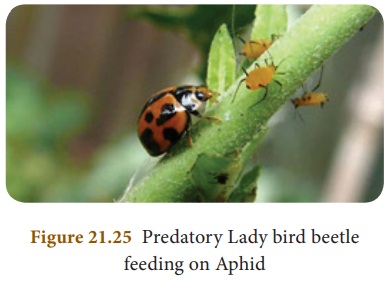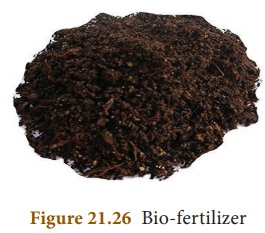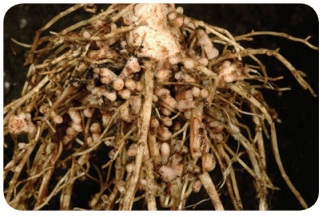Crop Production and Management | Chapter 21 | 8th Science - Bio-control Methods | 8th Science : Chapter 21 : Crop Production and Management
Chapter: 8th Science : Chapter 21 : Crop Production and Management
Bio-control Methods
Bio-control Methods
Bio-control or biological control is
a method of controlling pests such as insects, mites, weed and plant diseases
using other organisms. Bio- predators, bio -pesticides,
bio-repellents’ and bio-fertilizers are used for controlling microorganisms
which cause damage to the crops, pests and insects.

Bio-predators
These are naturally occurring
insects that use pests for feeding or multiplication. These are called
bio-predators. By introducing large numbers of predators in a greenhouse we can
destroy the pest. Predators like Chrysopa spp. and Menochilus spp. are highly
useful in controlling pests like aphids, white flies, cotton bollworms, leaf
insects etc.
The black kneel capsid
is an insect found on fruit trees. It eats more than 1000 fruit tree red spider
mites per year.

Bio-pesticide
Bio -pesticides are living organism
or their derived parts which are used as bio-control agents to protect crops
against insect pests. Bio-pesticides are of different types based on their
origin.
a.
Fungal bio-pesticides
Trichodermaviride is a fungus used
as a biological pesticide. It is useful to control various disease caused by
fungi such as wilt, rusting of leaves and root disease.
b.
Bacterial bio-pesticide
A culture of bacillus thuringiensis
bacteria is effectively used to control the pest Lepidoptera that attack cotton
and maize plants. Panchagavya and leaves decoction of some plants are also used
as bio- pesticides.
Bio-repellant
Compound Azadiractin obtained from
seeds of neem serves as a good insect-repellant. One of the earliest pesticides
used by man was margosa leaves. The dried leaves repel the pests from stored
grains.
Bio-fertilizer
Bio-fertilizers are organisms which
can bring about soil nutrient enrichment. Nitrogen fixing microorganisms have
the capability of converting free nitrogen into nitrogenous compounds and make
the soil fertile. The main source of bio-fertilizers is cyano bacteria and
certain fungi. Free living cyano bacterium involves in nitrogen fixation along
with photosynthesis. Eg. Anabeana,
Nostoc. Symbiotic bacteria also fix atmospheric nitrogen. E.g. Rhizobium. Although the chemical
fertilizers increase food production, they degrade the natural habitat.

Activity 7
Take a leguminous
plant like pea and find out if there are any nodes. Rhizobium bacteria live in
such nodes.

Related Topics